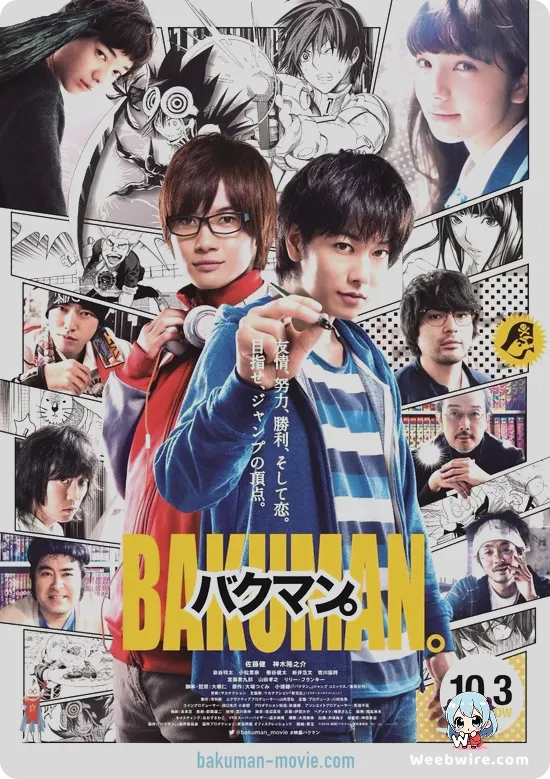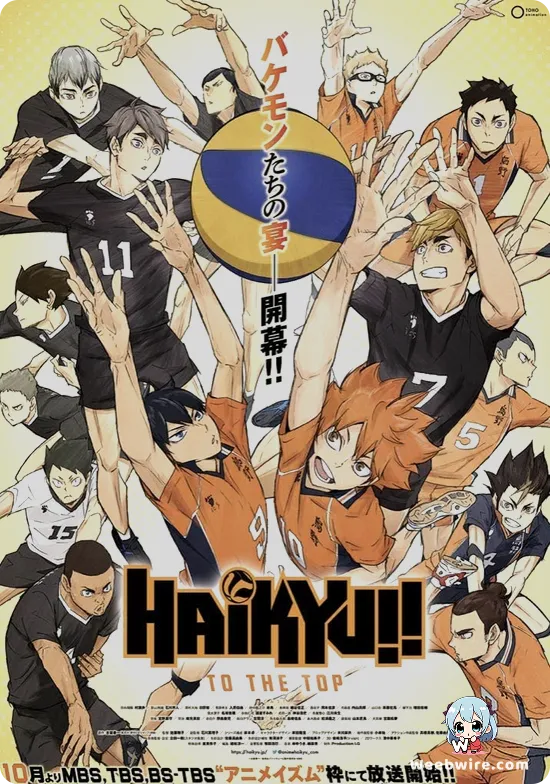
Back to Anime List

© J.C.STAFFwww.hulu.com
Overview
Bakuman. 2 meticulously charts the next phase in the careers of the aspiring manga duo, Moritaka Mashiro (artist) and Akito Takagi (writer), operating under their joint pseudonym, Muto Ashirogi. This second season immediately introduces significant professional upheaval as their dedicated former editor is replaced by the more pragmatic and results-oriented Gorou Miura, forcing the protagonists to rapidly adapt their creative strategy and content approach to maintain their momentum within the fiercely competitive weekly serialization landscape of *Weekly Shonen Jump*. The core conflict revolves around their efforts to evolve their ongoing series, *Tanto*, while simultaneously fending off intense rivalry from established and burgeoning mangaka, most notably the genius Eiji Niizuma. The narrative provides an unparalleled, authentic look into the internal mechanics of the manga publishing world, detailing the rigorous schedules, the critical feedback loops, and the constant pressure to deliver high-quality content under tight deadlines. Furthermore, the romantic promise between Mashiro and Miho Azuki, who is pursuing her dream as a voice actress, continues to serve as a powerful emotional anchor, tethering their professional ambitions to a shared personal goal of achieving success before their union. Themes of artistic integrity, perseverance against editorial demands, and the complex balance between commercial appeal and creative passion are explored with nuance, making Bakuman. 2 a compelling continuation that deepens the understanding of the sacrifices required to ascend to the top tier of the Japanese creative industry.
Opinion
The production quality of *Bakuman. 2*, helmed by J.C.STAFF, maintains a consistent visual standard suitable for its slice-of-life framework. The animation is clean, focusing less on dynamic action sequences and more on detailed character expressions and realistic office/studio environments, effectively conveying the intensity of the deadline-driven atmosphere. Character development is a core strength, showing significant maturation in both Mashiro and Takagi as they navigate professional setbacks and editorial shifts, particularly with the introduction of their new editor, Miura. The voice acting ensemble delivers nuanced performances; specifically, Namikawa Daisuke and Yamashita Daiki successfully articulate the evolving partnership dynamics and internal anxieties of the main duo. Story pacing is generally deliberate, reflective of a serialized narrative dealing with long-form career progression, although some arcs dedicated to minor rival characters occasionally contribute to momentary slowdowns. The thematic depth regarding artistic integrity versus commercial viability is handled expertly, providing genuine insight into the ethical dilemmas faced by creators in the industry. The series functions as an effective meta-commentary on the shonen genre itself. Overall, the execution is highly professional, achieving a compelling blend of drama, inspiration, and factual industry exposition without relying on overt melodrama or spectacle.
Characters
Moritaka Mashiro
Voice: Namikawa Daisuke
Akito Takagi
Voice: Yamashita Daiki
Miho Azuki
Voice: Sakura Ayane
Gorou Miura
Voice: Shunsuke Sakuya
Credits
Studio
J.C.STAFF
Cover Art
Official promotional art team
Publisher
Shueisha
Producers
J.C.STAFF, Shueisha, NHK Enterprises
Episodes
Season 1
25 episodesInformation
StatusCompleted
Total Episodes25
Duration24 min
Rating8.3
ReleasedFall 2011
Seasons2
Genres
ComedyDramaRomanceSlice of Life
Related Anime

Fullmetal Alchemist: Brotherhood
Spring 2009★ 9.2
ActionAdventure+2

Haikyu!!
Spring 2014★ 9.1
ComedyDrama+3

Gintama.: Slip Arc
Fall 2017★ 8.9
ActionComedy+2

Hajime no Ippo: The Fighting!
Fall 2000★ 8.9
ComedyDrama+1

Mob Psycho 100 III
Fall 2022★ 8.9
ActionComedy+4

HAIKYU‼ TO THE TOP Part 2
Fall 2020★ 8.9
ComedyDrama+1